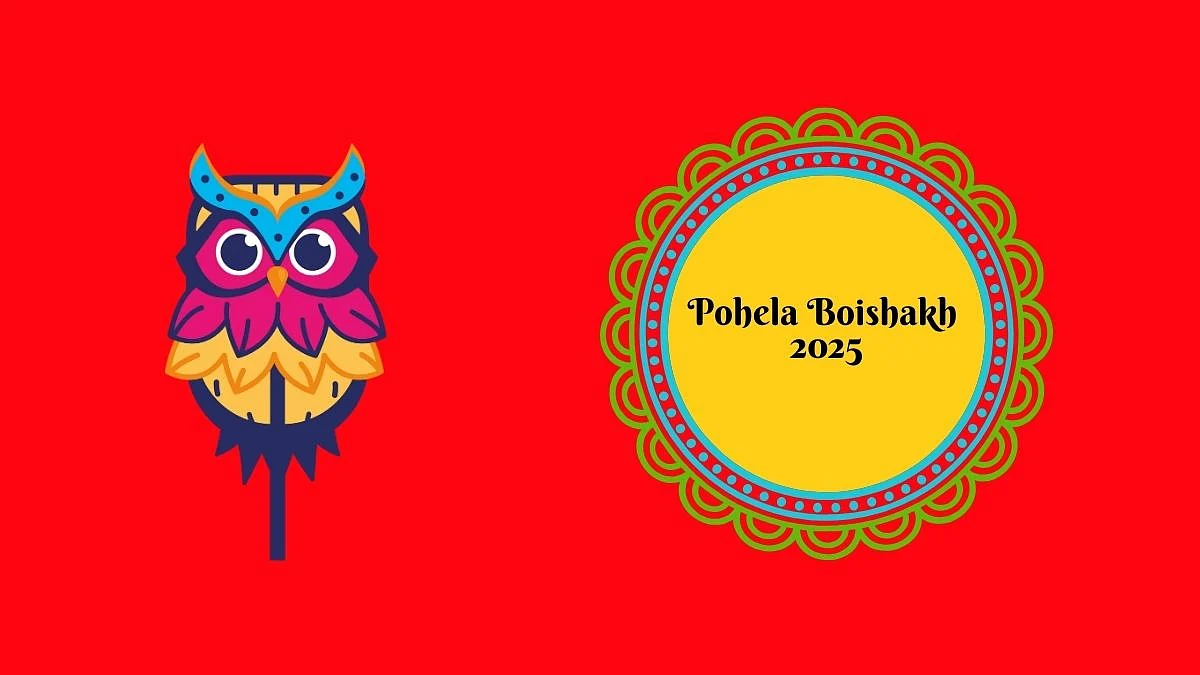Pohela Boishakh 2025: Date, Shubh Muhurat, History, Significance And Celebration Of Bengali New Year
Also known as Poila Baisakh or Noboborsho, this vibrant festival is much more than just a New Year’s celebration; it is a time to embrace heritage, hope, and happiness.

Pohela Boishakh 2025 | FPJ
As the first day of the Bengali calendar approaches, Bengali communities across the globe gear up to welcome Pohela Boishakh 2025, a festival that celebrates tradition, renewal, and cultural pride. Also known as Poila Baisakh or Noboborsho, this vibrant festival is much more than just a New Year’s celebration; it is a time to embrace heritage, hope, and happiness.
When is Pohela Boishakh 2025?
In 2025, Pohela Boishakh will be observed on Tuesday, April 15. According to Drik Panchang, the Sankranti muhurat, which marks the solar transition into the month of Boishakh, will occur in the early hours of Monday, April 14, at 3:30 AM. This transition marks the official beginning of the Bengali New Year.
Historical roots and cultural significance of Pohela Boishakh
The origins of the Bengali calendar are often linked to King Shoshangko, an ancient ruler of Bengal, who is believed to have initiated the Bengali era around 594 CE. Pohela Boishakh coincides with the harvest season, making it a festival that not only marks the start of a new year but also celebrates prosperity and gratitude for nature's bounty.
ALSO READ
Apart from being a cultural celebration, the day holds commercial significance as well. Bengali traders and shopkeepers traditionally start Haal Khata, or new accounting ledgers, on this day, seeking blessings for a successful year ahead. This ritual, which merges faith and finance, highlights the spirit of fresh beginnings.
How is Pohela Boishakh celebrated?
The day is celebrated with vibrant processions, melodious Rabindra Sangeet, and community fairs that unite people in joyful festivities. Homes are thoroughly cleaned and decorated, particularly the entrances, which are adorned with alpona, traditional designs created using rice paste.
People dress in new traditional outfits, with women often wearing red-and-white sarees and men in kurta pyjamas. Many visit temples or community gatherings to offer prayers for good fortune and happiness. One of the most beloved aspects of Pohela Boishakh is the sumptuous feast. The spread typically includes dishes such as ilish maach (hilsa fish), dhokar dalna (lentil cakes in curry), various sweets, rice, and other regional delicacies.
In both Bangladesh and the Indian states of West Bengal, Tripura, and parts of Assam, the day is celebrated with great enthusiasm, including music and dance. Cultural programmes, such as poetry recitations, folk performances, and theatre, are also essential parts of the festivities.
RECENT STORIES
-
-
-
-
-